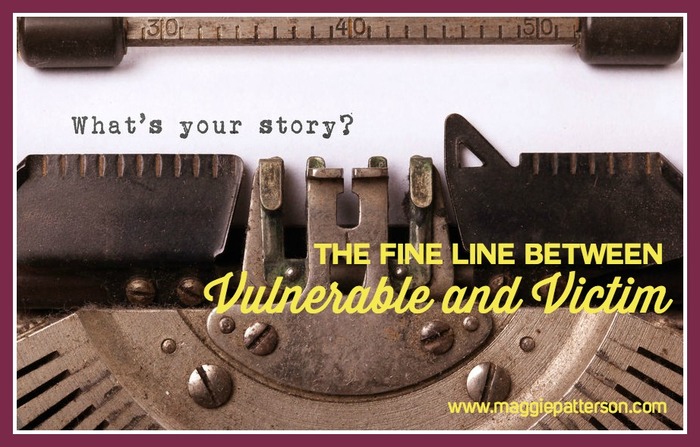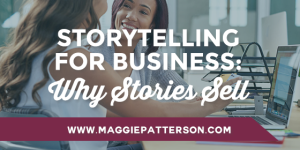
One of the most refreshing things about being an entrepreneur is the freedom to be imperfectly human.
Let me explain. Being in communications, especially in a corporate environment, there’s not a lot of room for error. It’s all about the details…and with good reason:
The public company’s press release on quarterly earnings with a 3 where there should be an 8 in a string of numbers can cause a major issue with shareholders.
A typo in the name of one of the executives in a media guide for an event (with 50 reporters attending) means the next day that person’s name is published in 49 places with the wrong spelling.
Or when someone’s business card proof isn’t checked…suddenly the Director of Public Relations…is the Director of Pubic Relations and they only find out after handing out cards at a major industry event.
Details matter. And being human isn’t entirely possible when you’re striving for as close to perfection as possible. Which is why when I showed up in this fun loving new world of entrepreneurship, all the being vulnerable and authentic seemed refreshing as suddenly I didn’t need to have a heart attack over a typo.
Until I noticed a pattern. Where storytelling goes so, so wrong and takes a sharp turn into “holy shit, are you kidding me territory.” There’s storytelling…and then there’s some stories that shouldn’t be told in your business.
Before I go any further, this is not to deny or belittle anyone’s sad stories. We’ve all got them, some of us more than others, but just because you have a story doesn’t mean it’s one that should be shared. There’s no entrepreneurial rule that says you need to dish all the dirt on your past (or present) to be likeable and human. How much you share, how deep you go, is up to you.
But before you share anything else personal, give some thought to what exactly you’re doing because it’s a fine line between vulnerable and victim.
The Tricky Business of Vulnerability
I’ve written before about how I feel about being “authentic” and I’ve got to say, vulnerability may even be a bigger epidemic. While I love and respect the work of Brene Brown on vulnerability, it can go too far.
What Brown teaches is about being honest with yourself and the world about who you really are. Completely needed. But where this all goes off the rails is when it comes to packaging it up into a story for your business.
Storytelling definitely requires sharing and transparency, but when you’re creating some drama to share to show how vulnerable you are, announcing your vulnerability while pounding on your chest or employing “strategic vulnerability” (and yes, that’s a thing) we need to talk.
Some stories are going to be harder to share than others, and that’s totally normal, but there needs to be a reason for the story. Telling stories without a clear reason or tie into your business creates a disconnect. Your audience will be left en wondering what in the hell is going on.
A health coach or life coach talking about a body issue or eating disorder makes a lot of sense. But for example, if as your friendly communications strategist I suddenly started talking about my struggle with weight on the regular with no clear tie, it’s just plain weird. Yes, it makes me vulnerable, but it shouldn’t be a little diddy I throw in to make me seem more human.
You shouldn’t need to “seem” more human, you just need to be more human, but do it in a way that ties into what you actually do.
[Tweet “Are you trying too hard to be “human” in your marketing? New blog post by @magspatterson.”]
Crossing the Line from Vulnerable to Victim
Being vulnerable where it makes sense with your stories is one thing, but it’s a fine line between being vulnerable and playing the victim.
It may not be popular what I’m going to say next, but being vulnerable may not be doing you or your business any favours. Yes, showing your human, telling stories is amazing….until it crosses over into the victim zone and makes people wonder if you’re reliable or credible.
One blog post about collapsing on the floor because you were so stressed and overwhelmed may be okay, but a recurring pattern of social media or blog posts where you’re one hot mess week after week is not doing you or your business any favors.
Do you want to give your money to the coach that’s seemingly emotionally unstable, or the one that’s professional and you are confident can deliver? Exactly.
Like Attracts Like
It’s a fact that like attracts like. So if all of your stories are overly emotional, you are going to attract clients that identify with that.
If you have an unreasonably high number of challenging and/or straight up nuts clients in your business, you may be telling the wrong stories. Because if you’re crying on the floor all the time, it’s definitely okay for them not to have it together either. You’re the one that sets that pace for what’s okay in your business.
If you think about the type of client that you want to work with, think about what they will really identify with and go from there. Fill their needs first, because its not about you – it’s about them. And if you’re always dealing with drama with your clients, you may need to dial down your crazy and take a hard look in the mirror.
They Don’t Really Care About You
Outside of your most loyal followers in your community, most people don’t care about you. They care about what you can do for them. It sounds cold, but you need to get them over the “What’s In It For Me” factor quickly if they are going to read on or engage with you further.
Have you heard the term know-like-trust factor? For them to like or trust you, they first need to know you. So you need to make it easy for them to get to know you, and if you’re sharing stories that stand in the way, it defeats the point of storytelling entirely.
If you’re going to share stories – focus on ones that address what you can do for them, how you can deliver what they need and with things they identify with.
Plus….if all you’re doing is sharing your “real”, “vulnerable” and “honest” sad stories, you’re going against human nature because we’re trained to expect a happy ending. Sad story, after sad story…and oh wait, another sad story, and you’re throwing a pity party and not giving them their happy ending. You’ll never get out of the know stage, because people aren’t going to give you that chance.
You can be vulnerable and human, and still be a pro that people want to work with. No crying on the floor and no sad stories without a freakin’ point.
Not every story needs to be told, so be smart about which ones you choose.
[Tweet “The fine line between vulnerable and victim – when storytelling goes awry with @magspatterson”]


